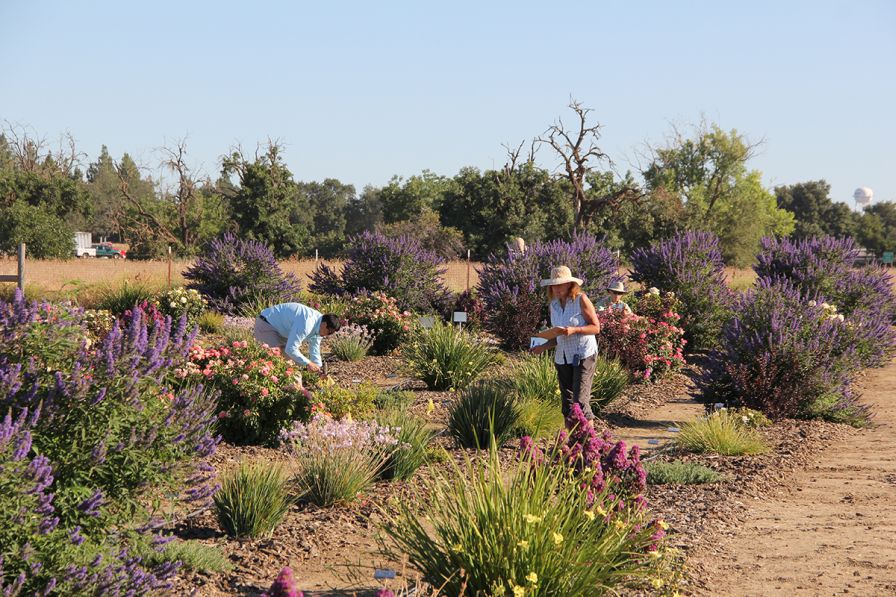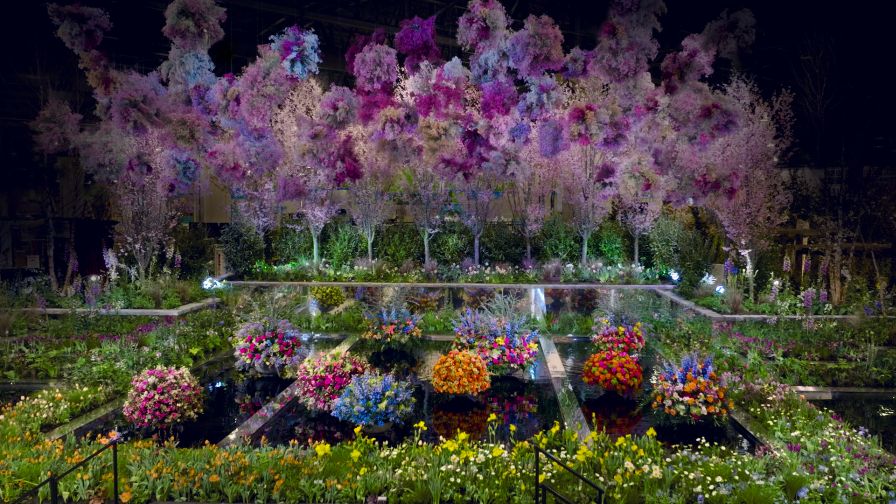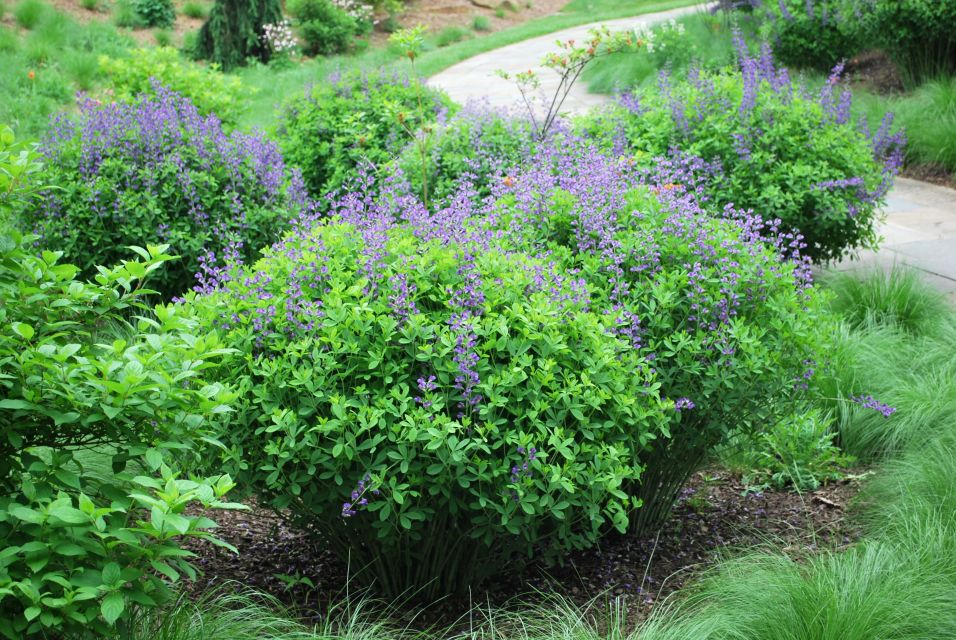How One Company is Betting the House on Greenhouse Cannabis
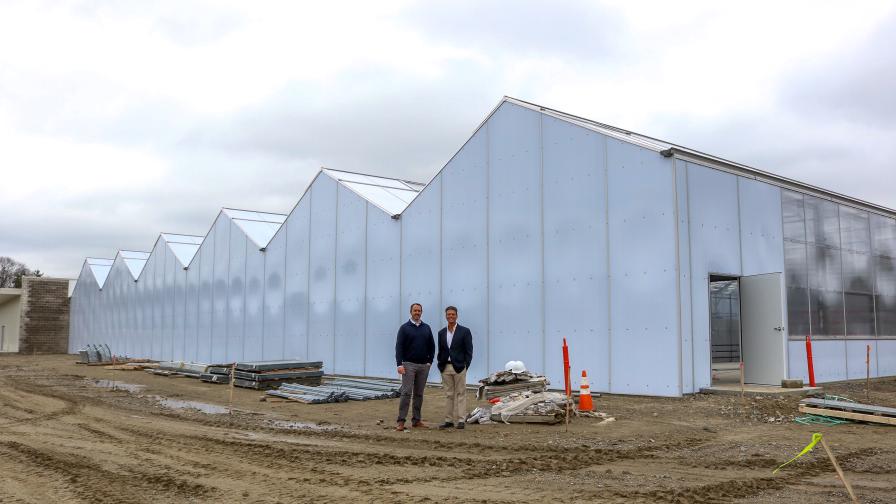
Americann CEO Tim Keogh and VP of Sales and Business Development Doug Carr in front of the MCC during construction.
Nearly one million square feet in total capacity — all dedicated to growing and processing horticulture’s hottest emerging crop, legal cannabis — is about to come online in Southeastern Massachusetts in early September.
Christened the Massachusetts Cannabis Center, the massive, state of the art 52-acre structure will be “a center of excellence for the cannabis industry” and will provide product to medical patients and adult-use consumers throughout the state, according to the company.
The 800,000 square foot production greenhouse in Freetown, MA, with additional square footage for processing and office space as well (987,000 total), will be occupied and managed by Americann, Inc., a Denver, CO-based, publicly traded agricultural technology company that develops cannabis cultivation, processing, and product manufacturing facilities. The startup will also lease sections of the facility to six tenants that will each grow in 100,000 square foot blocks.
How big of a bet is this for the shareholder-funded group?
Well, taking a gander at the company’ financials, which sport total profit losses of $4.4 million in 2018 and $2.7 million the previous year, one would assume the startup’s investors are eager for a better story to tell at holiday cocktail parties come the end of 2019.
With the opening of such an impressive facility in Massachusetts this year, along with its stated intentions to open similar facilities in states in which cannabis is legal for medical and adult use, it stands to reason there will be good days ahead for Americann.
Tim Keogh, the group’s CEO, remains optimistic about the prospects of a large-scale cannabis production in a greenhouse environment.
“I’d say about 98% of the cannabis being grown in the U.S. right now is being produced in indoor, renovated warehouses, but we feel the future is a transition out into the greenhouse,” Keogh says.
Describing most repurposed industrial grow facilities as “horribly inefficient,” a fact Keogh says rings particularly true in the design aspect, as “many of them are former factories or warehouses that have been converted into cultivation spaces.”
Currently, Keogh says there are various legal markets that are keeping indoor warehouse production more than viable via the high wholesale prices that growers can still demand from retail. Yet, he’s also witnessed in the ultra-competitive markets a sort of price bubble bursting, where intense competition and surplus product (think Oregon) combine to drive both wholesale and retail prices into the dirt.
It is in these downward price pressure situations, which will only become more common as legal access in the U.S. expands, where a grower must uncover new efficiencies to carve down the overall cost of production.
That is precisely where greenhouse cultivation hits a sort of economic sweet spot, Keogh says.
“In controlled environment (growing), you rely on your lights 100% of the time,” he says. “Once you get into the greenhouse and you kick out a lot of those utility costs, you see your cost of production start to go down. A big part of this switch (to greenhouse) is just future-proofing against price compression in the market.”
An Ag Tech Company That Produces Cannabis?
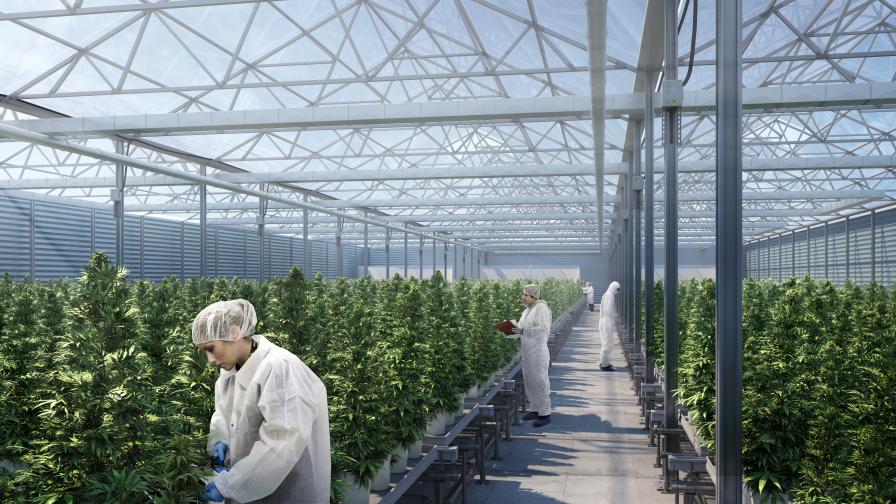
An artists’ rendering of the finished Massachusetts Cannabis Center production greenhouse space.
Americann, which markets itself as an agricultural technology company, says it will outfit its soon-to-open mega greenhouse with the latest and best from the world of digital and hardware.
“We’re talking very robust environmental controls, LEDs for supplementary (light), fertigation systems with automated metering, and then we get into things that are unique to cannabis, like our odor mitigation system,” Keogh says. “We’re ionizing the air so we’re not out here pumping a bunch of pungent cannabis odor into the community.”
The odor mitigation tech that AmeriCann will use was repurposed from hog farms and retrofitted for the greenhouse, Keogh says. Another area of tech investment will be in seed-to-sale tracking systems.
“We’re developing our own seed-to-sale tracking systems that can interface with the data from our environmental control systems, which helps us match up how different flavor profiles and levels of terpenes (in the finished product) will match up with how we grew the cannabis,” he says.
Finance Still a Limiting Factor
Just because Massachusetts voters overwhelmingly approved a legal recreational cannabis market for their state, that doesn’t mean life at AmeriCann is all sunshine and kittens these days. There are still many challenges to producing and marketing a product that remains illegal under Federal law.
“The banking side of this industry is still tremendously clunky,” Keogh says. “Banks that work with cannabis companies have to be vetted, which costs them money, and then some of these banks are turning around and charging fees of $5,000 to $10,000 a month just for basic business checking.”
Sounds like the perfect situation for the banks to drive profits for their shareholders, right? Not so fast, according to the CEO.
“When we talk to our bankers, who are collecting these fees and making all this money, it’s not like they’re wringing their hands and saying this is so great,” Keogh says. “They want more clarity (from the Feds), too.”
“Banking is a huge issue,” he continues. “And the other piece of that is the taxes, as a cannabis retailer we pay effectively a 70% tax rate on cannabis.”
Is Old School Hort Experitse ‘All In’ on Cannabis?
Another issue AmeriCann has been running up against is reluctancy from those already working in horticulture when it comes to transitioning the expertise to legal cannabis.
“Traditional horticulture expertise in some ways still refuses to participate in the cannabis industry because of the federal illegality issues, and a lot of the top-end growing and breeding knowledge in the industry is staying away from this until it all sorts itself out,” Keogh says.
Still, Keogh and Co. never threw in the towel on their mission to merge traditional greenhouse growing and legal cannabis cultivation. What we’re about to see open in Freetown is the result of that persistence.
“We were able very early on to present a professional approach and bring in horticulture experts,” Keogh says. “We’re a public company. We’re audited, and we report to the Securities Exchange Commission (SEC) just like any other legal business.
“This can be done professionally and responsibly, and it’s not something the (horticulture) industry needs to be afraid of,” he says. “With that approach, we were able to get ahead of the market and implement a traditional greenhouse growing system.”
As of press time, The Massachusetts Cannabis Center is set to be officially unveiled to the media and others sometime in mid to late September.




